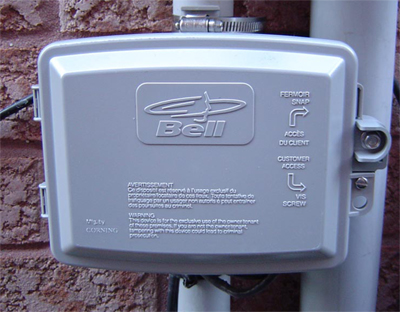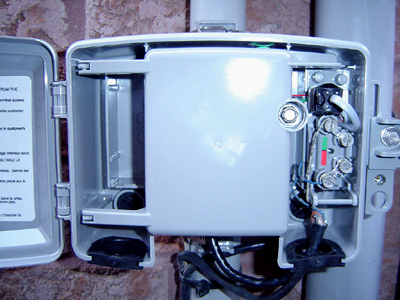Re: VoIP -- Anyone Using? Quality?
For the uninitiated, the way many phone calls work is that your call goes to a local 'central office', where its quite often converted to a data packet and sent over an 'internet like' connection, only to be reassembled and zapped out a wire to the phone at the other end. VOIP products cut out the middleman of your local phone company, packetizing your phone conversation directly in your home in the telephone adapter, zapping it over the internet to a central office somewhere else in the world, wherever you're calling to, then its put through that central office and to a wire and then to the phone you're calling. The connection at the 'far end' looks just like you're using a cell phone or some long distance provider to access the far ends local wiring. Vonage and packet8 pay a nominal 'access charge' to the local companies to connect their calls. Callvantage uses at&t's long distance network connections which they're already paying for.
Call quality for all of them is darn good. Funny story on that 'hum' you hear on your callvantage calls...they had to add that in because people frequently thought they had lost their connection during quiet times in the conversation because they couldnt hear that "background noise". Some TA's for all of the manufacturers do sometimes give off a hum...changing TA's can help that.
At worst, call quality is comparable to cell phone quality. At best, its better than a landline.
Faxes and modems (say if you have an old tivo or a directv receiver or similar) may or may not work through these. Packet8 has SOME abilities to do fax and tivo, callvantage just added it (and so far its working for me), vonage doesnt have it.
There are other weirdities. Callvantage for example doesnt support the "COD" signal which is sent by the regular phone company when a call disconnects. As a result, your answering machine may not work with callvantage if it wants to hear the COD signal. Short messages may record, followed by 2 minutes of the annoying beeping sound and the recorded "if youd like to make a call, please hang up and dial again". AT&T appears to completely not understand why someone would want to use their existing answering machine and not the at&t voicemail. The "wife acceptance factor" on this is very low at our house as our answering machine has a blinky light on it but to see if we have voicemail you have to pick up the phone and listen to the dial tone.
911 calling is also odd. You dont go directly to the local 911 center, but to the local emergency center, which may be the sherriffs office or somesuch. They know how to deal with emergencies but they do NOT get your local name and address automatically displayed as you do with a regular phone. Packet8 charges an extra $5 a month for this, its included with vonage and callvantage. This could be a big problem if you have a small child or someone who cant speak calling 911. This will get fixed at some point, but its not now.
Ok, thats the bad, heres the good:
- Free unlimited long distance anywhere in the US or in north america, depending on carrier.
- You can get a phone number, add an additional number thats anywhere in the US, or add an 800# to your phone at nominal or no cost. This may allow other people in other geographic areas to call you as a local or 800# for free, extending your free call benefits to them.
- Every single 'extra' you can think of - voice mail, caller id, three way calling, call waiting ID, etc, all included in the basic $20-30 a month service cost
- Flip off the local phone company...who will then absolutely PESTER you with calls "wanting you back" and offering all sorts of deals until you tell them if they call you again you'll hunt them down and kill them.
- Depending on the company, cool features like "do not disturb" that causes the phone to go directly to voicemail during the night, dinnertime, whatever, without ringing...while allowing someone to press "2" to connect in an emergency..."follow me" which will call your work phone, cell phone, or ring them all and connect to the first one that answers when someone calls your house, conference calling that lets you connect a dozen or more people on one call, etc.
The short answer is as long as you have an emergency cell phone, nobody with life threatening emergency problems, and dont care if nobody answers your questions or fixes your problems for days on end, its pretty cool stuff at a pretty good price. If you're paying more than $30 a month for long distance and have a broadband connection, its a no-brainer to add one of these and keep your landline, using it just to make your LD calls.


